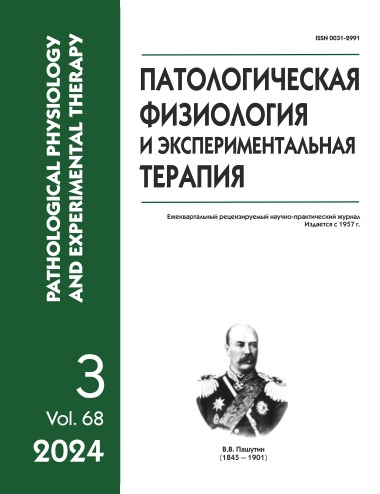The neuroprotective effect of Klasea centauroides (l.) Cassini dry extract in long-term alcohol intoxication
Abstract
Introduction. Klasea centauroides is a perennial plant of the Asteraceae family, which contains a broad array of biologically active substances and is used in folk and traditional medicine to increase the body's resistance to mental and physical stress.
Aim: To evaluate the effect of the Klasea centauroides dry extract on energy and antioxidative processes in brain cells during long-term alcohol intoxication.
Methods. The experiment was performed on 32 white Wistar rats weighing 180-200 g. The control and experimental groups received 40% ethyl alcohol at a dose of 10 ml/kg for 6 weeks. Starting from the third week of the experiment, the animals were intragastrically administered the K. centauroides dry extract at a dose of 100 mg/kg for 4 weeks. The functioning of the mitochondrial respiratory chain was assessed by the activity of NADH dehydrogenase and SDH complexes in the brain. The development of free-radical processes of lipid oxidation was determined by the concentration of malondialdehyde (MDA). The state of the antioxidant system was determined by the enzymic activities of catalase (CAT), superoxide dismutase (SOD), glutathione peroxidase (GPx), and glutathione reductase (GR), and the concentration of reduced glutathione (GSH) in the brain.
Results. The study showed that the K. centauroides extract increased the activities of the NADH dehydrogenase complex and SDH complex in brain mitochondria by 1.5 times under the conditions of long-term ethanol intoxication (p≤0.01). The use of K. centauroides reduced the MDA concentration by 27% (p≤0.05) and exerted a positive effect on the antioxidant system by stimulating the activities of SOD (1.2 times; p≤0.05) and GR (1.4 times; p≤0.05) in brain homogenate.
Conclusion. The K. centauroides dry extract used at a dose of 100 mg/kg during long-term alcohol intoxication normalizes energy processes, inhibits free-radical oxidative reactions and the production of reactive oxygen species (ROS), and enhances the endogenous antioxidant defense in the brain.






